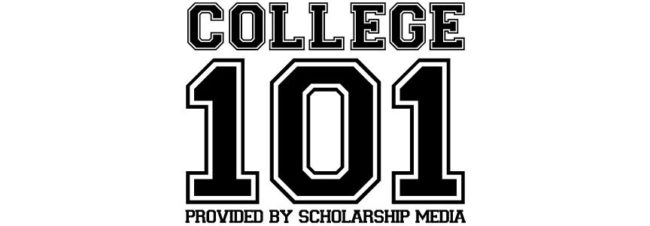I am writing this without being sure I’m allowed to write to you. I’m not technically a college student. I mean, I was; my family had an emergency and I have to take a year off and live at home. Maybe it’s going to be longer than a year – I don’t know. Having said that, I really want to finish my degree. I live about an hour from a college that I could transfer to, but my car is a piece of garbage. I bought it for summer job money, and it shows. The paint is flaking and all gritty. I’m pretty sure it’s out of alignment. It smells weird. With all this, I have no idea how much I will end up spending on repairs. I’d have to spend money on gas and oil in addition to fixing it.
My other option is to do an online degree. An online degree might actually be more expensive, because I can’t get the same scholarships, but I could work and be with my family at the same time I am taking my degree, which I couldn’t do if I was commuting two hours every day. Do I invest the money in getting my car fixed and become a commuter student, or do I go online?
Wow. We applaud you. It sounds like you had a pretty significant disruption in your life and you’re taking it in stride, and that requires a lot of maturity, not only to handle the circumstances that life throws at you, but to also plan to finish your degree on top of that. You have winnowed down your options to what is best for you, and now you just want help deciding which direction to go. Let’s take a look at them, and address how best to move forward for you.
First off, your car doesn’t seem that junky. While we’d all like to cruise around in a Corsair with a fresh paint job (check) and a fresh inside (check) the reality is that it’s hard to find a “top notch slab for the dirt-cheap price.” If you want to commute, you have to figure out which repairs you want to prioritize. According to Bankrate, a wheel alignment will cost $75-$200. It is worth it. Otherwise, you’re putting wear and tear on your tires, and constantly buying new tires gets expensive.
That grit on the paint job sounds like overspray. According to National Overspray Removal, a company that removes paint overspray removal from vehicles, paint overspray is “any contaminant that sits on top of the clear coat and other surface panels that cannot be easily washed off of the vehicle.” Sand, soot, chemical and industrial blowouts, wet cement, and road paint all seep into your car’s paint job, often creating a gritty, rough patch that can’t easily be removed by typical cleaners. You’ll want to clean off the overspray and paint over the rust because, like your alignment, rust leads to problems later down the road (har-har).
A weird smell? If it reminds you of something burning, get it checked out. But if it smells like something rotting, we’re afraid there’s not much you can do other than to take it to your shop and have the technicians check the vents for dead animals. My advice: get an air freshener. They’re five bucks at your local gas station.
That said, I do not know your financial situation. Maybe you can’t cover all these costs. But even without them, your car seems to be running well. Now that we have a baseline idea of how to take care of your car woes, we should focus on something more pernicious: your commute. According to the Journal of Preventive Medicine, a long commute is correlated with poor health and higher levels of stress. Ideally, you would want to spend as little time commuting as possible. It’s better for your head, better for your body, and because of these two facts it will be better for your family and better for your schoolwork.
Remembering all of this, let’s talk about online degrees. Online degrees deliver as much to you as you are willing to get out of them. According to the US News and World Report, students taking online degrees require more discipline than students pursuing traditional degrees, because students taking online degrees tend to encounter more challenges. Think of yourself: you have work, you have family, and you have a car that’s hard to love. Piling all of this atop online schoolwork, where you don’t have the traditional support network that a college provides, pulls your focus away from doing your best.
If you have the focus and drive to commit to an online degree, I would make two suggestions: first, prepare yourself for how a degree online is differ than an in-person degree. Linfield College, a college in Portland that offers both online and offline options, created this assessment detailing the skills that you need to complete an online degree. It is always better to be prepared than to be scrambling.
Second – and it rends our hearts to say this as people who love the Humanities – if you are going to get a degree online, consider getting a practical one. This might mean pursuing an online international business degree rather than a degree in pottery, but there are two reasons why: first, a business degree requires knowledge, but not necessarily the kind of facetime with a professor it takes to master a field like history or literature; second, you can always go back to school to pursue your degree in art or humanities. Graduate school is great for this. You have a whole lifetime to learn.
So, you asked, if you should commute, or if you should go online. Now we ask: why not marry the best of both worlds? Take online courses for now, then transfer to the state school once you become more stable. Research your state school to determine which classes and seminars you can easily take online, then transfer on campus for your upper-level classes and seminars. That way, you work with the professors and professionals at the time they can be most helpful to you. Should you really be in a bind, see what skills you can accumulate in the meantime. It may help you in your courses–you will be ahead in certain skills, and some colleges may even give you credit for the work.
Getting an education is a lot like fixing up your car: if you plan for little contingencies and are able to identify solutions to small problems, the more big problems you prevent, and the more you will thank yourself down the road.
“There are no secrets to success. It is the result of preparation, hard work, and learning from failure.” – Colin Powell









